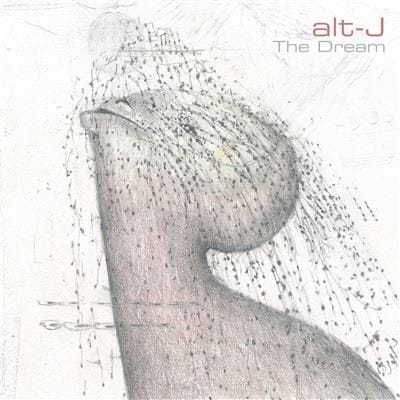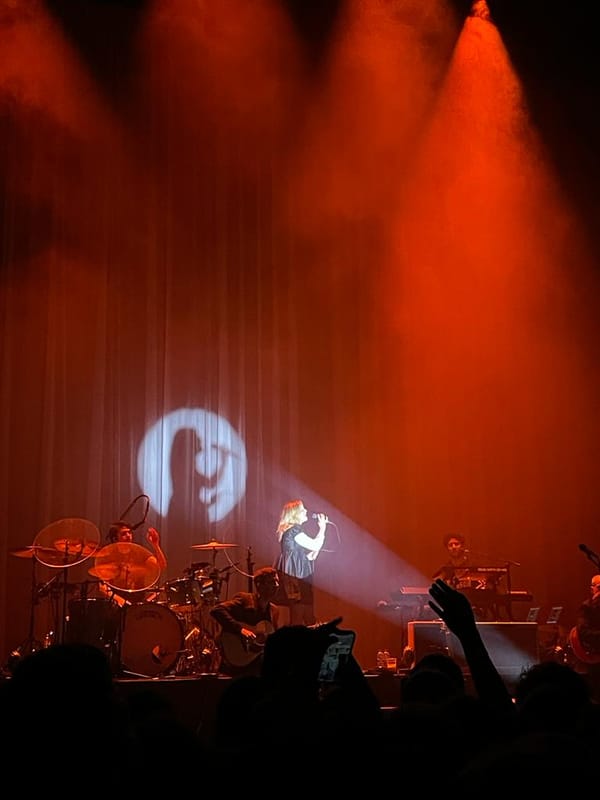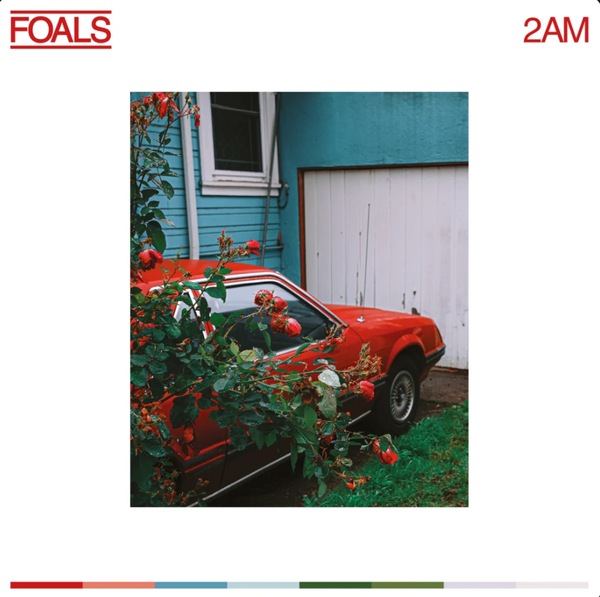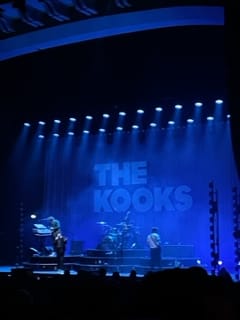Alt-J Have Not Been Caught Napping
How do you recreate the magic of a Mercury Award-winning debut from a decade ago? This is fucking how.

I remember sitting in my mum's hatchback with a cousin when she first introduced me to alt-J. For a few years after, I'd struggle to explain why "Taro". from alt-J's 2012 debut, 'An Awesome Wave', was one of the most played songs in my library. It sat silently in the midst of easily compressible American Top 40 songs I'd picked off the charts thinking I was a true music connoisseur. "Taro" was like nothing I’d ever heard at the tender age of 13. It describes war photographer Robert Capa’s dying moments and his reunion with his former lover, Gerda Taro, also a war photographer who had lost her life earlier in during the Battle of Brunete, all sung against a folktronica interpretation of the Indochina war.
A majority of alt-J's critique over the years has revolved around their sombre outlook of the world and how they channel that darkness into their music. For instance, Joe Newman, the band's vocalist and guitarist, avoids talking about the murder of his friend's sister but allows that trauma to veil his songwriting. Nevertheless, what’s drawn me to their music is their cultivation of a unique sound that blends storytelling and obscure references. But when asked about references that may have escaped listeners on an “Ask Me Anything” session hosted on the r/Music subreddit, Gus Unger-Hamilton (keyboard and backing vocals) and Thom Sonny-Green (drums) realised that they’ve slowly gained the confidence to wean off referring to other people’s work. “I think in a way it was partly that we felt a little bit of insecurity and almost imposter syndrome,” explained Gus. “We started out as a band, because we were quite young and, you know, essentially just like kids at university without a huge amount of life experience.”
It is exactly this search for inspiration from within that birthed most tracks on the album. The album opens with a satiated sigh after a crisp sample of a can opening, promptly replaced by alt-J’s characteristic ambient guitar twangs and reverberating drums. It’s a penetrating sound that chills your bones – and I’ve missed it so much over their five-year hiatus. Despite “Bane”’s immersive and intoxicating nature, complete with a choir, organ, crumhorn and cello, you’d be surprised to know it’s simply an ode to Coca-Cola.
“Hard Drive Gold”, the third track and single of the album, is what I’d imagine alt-J to make if Joe Newman replaced Sharpay Evans as the main antagonist in High School Musical. Just as "Fabulous" from HSM2 flaunts Sharpay’s (very pink and rich) lifestyle, 'Hard Drive Gold' is a catchy, quick-tempoed song about the appeal of cryptocurrency, evidenced by a refrain that hasn’t left my head since I first heard it: “Don’t be afraid, to make, to make money, boy!”
“The Actor”, also the fourth single released from the album, is what Joe describes as an “imagined retelling of John Belushi’s death in the Chateau Marmont”. In the '80s, American comedian John Belushi was pounding every door for money to buy drugs until he was given a fatal shot of heroin and cocaine, known as a speedball. The event exemplified '80s drug-steeped America, and was reworked to tell the story of a failing actor “in the deepest end of an empty pool” living it large with drugs, cameras and paparazzis in a lavish hotel. The song begins with a brittle guitar riff that segues into a laid-back head-nodding rhythm taking listeners back to "this whole '80s, Reagan, drug-excess world", as Joe explains.
The chorus of the second single from the album, “Get Better”, started out as a short refrain Newman sang to his girlfriend having period pains. Newman then wove it into an intricate, yet poignant narrative from the perspective of a man who lost his partner. The lyrics reference their common love for Elliot Smith’s music, a meeting at the Serpentine as once young lovers, and cringing at “I Love You”s in ICUs. It’s a delicate song. They lose their reverbed vocals, and replace them with harmonies (brought to you by Unger-Hamilton Ltd.), but mostly reorient their familiar musical technique to focus on the softness of Newman’s voice. You can tell they want you to listen to his lyrics – or rather, poetry.
Although this isn’t their most notable track, there’s something to say about the minute-long “Delta” because it’s such a strong example of the mindfuck that alt-J embodies as a band. What inspired it? Why, of course, the well-known devotion you feel as an atheist when you’re standing in the Mississippi delta and witness aliens descending from the sky. A prayer devoid of instruments barring the trademark Newman-Unger-Hamilton vocals, "Delta" features my favourite lyrics in the whole album: "Force fields in the delta/I'm not a prayer man/But I'll kneel to that".
The album ends with “Powders”, which I didn’t listen to as much because of my poor album-reviewing etiquette. When I love an album, I want to listen to it from the beginning every time – and each time I don’t make it to the end. But something changed and I spent a whole day listening to “Powders” on loop. Newman describes the song, inspired by teenage love in America, as being about “the spark when you see someone across the room and you’re like, ‘I want to get to know them tonight’.” Away from the dark, yet amusing, chaos that permeates the rest of the album, this song feels like, what I’d best describe as, romantic meditation. It starts with Newman’s iconic meandering vocals backdropped by the sound of the sea. The music grows to a soft build-up where the instruments hold their breath, and a gentle rhythmic release followed by a relaxed guitar sequence. The song also sees alt-J dabbling in short spoken word insertions, particularly inspired by a Malcolm Gladwell podcast and enacted by Thom and his girlfriend.
As a critic, I'd urge you to listen to the album as soon as you can. But as a devout fan of the Leeds trio, I'd genuinely request you to read lyrics in the album. No artist I can think of can pull a story out of thin air, shift a lens there never was, and allow the world to see it from an entirely unexpected perspective.










